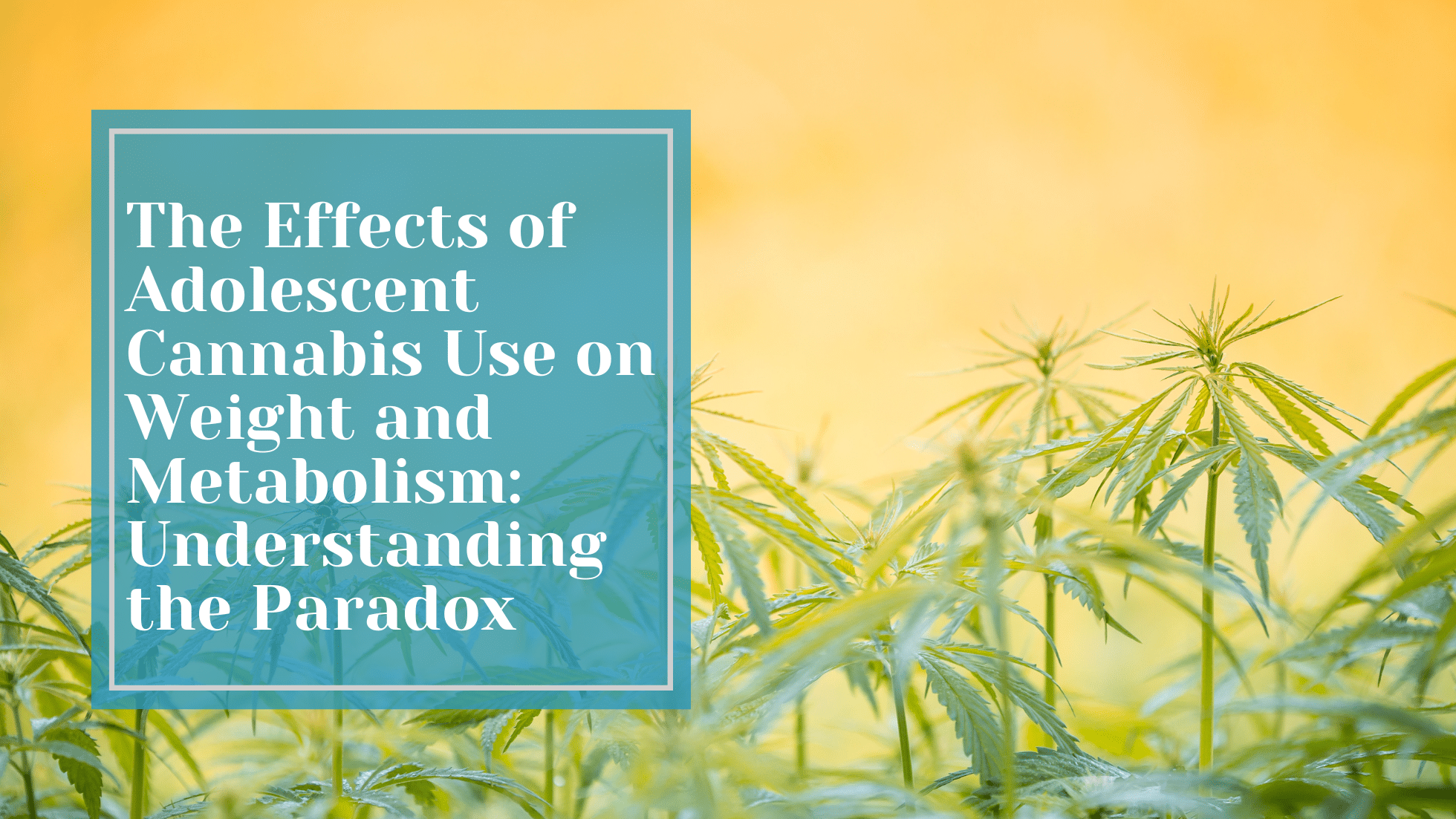The Effects of Adolescent Cannabis Use on Weight and Metabolism: Understanding the Paradox

It should be noted off the top that in Canada, the legal age for cannabis consumption is 19 years old in most provinces and territories.
Cannabis use among teenagers has been a subject of concern for many years. While we often associate cannabis with its psychoactive effects, a new study reveals that its impact goes beyond the brain.
Researchers have found that frequent cannabis users, despite experiencing the notorious “munchies,” tend to have lower body weight and a reduced risk of developing diabetes compared to non-users. This intriguing phenomenon has led scientists to investigate how cannabis, particularly during the teenage years, affects our body’s fat cells and metabolism.
The study, led by Professor Daniele Piomelli from the University of California, Irvine, explored the effects of cannabis use on adolescent mice. The mice were given low daily doses of THC, the primary psychoactive compound in cannabis, during their teenage years. Even after the THC treatment was stopped, the researchers continued to monitor the mice’s metabolism. Surprisingly, they found that the mice exposed to THC during adolescence had lower fat mass, increased lean mass, and were more resistant to obesity and high blood sugar. These effects were similar to what is observed in frequent cannabis users.
To understand why this was happening, the researchers examined the molecular changes caused by THC. They discovered that the fat cells of THC-exposed mice produced muscle proteins, which are not typically found in fat cells. This unusual process interfered with the normal functioning of fat cells, making it harder for them to store and release energy. As a result, these mice had a reduced ability to utilize stored nutrients for muscle activity, which could impact both physical and mental processes.
The study focused on adolescence because it is a critical period of physical development, and it’s when many individuals first experiment with cannabis. The researchers defined “the munchies” as the stimulation of high-calorie eating and recognized it as one of the iconic effects of cannabis. By investigating the effects of adolescent THC exposure, the study sheds light on the potential long-term consequences of cannabis use during this crucial developmental stage.
While this research was performed on mice, these findings have important implications for understanding the link between cannabis use and metabolic function. Epidemiological surveys have consistently shown associations between habitual cannabis use and alterations in metabolic health. By uncovering the molecular underpinnings of these alterations and their connection to adolescent cannabis exposure, we can inform evidence-based prevention strategies and guide future research.
It is important to acknowledge the limitations of the study. While the research focused on male mice, future studies should explore the effects of adolescent THC exposure on female mice as well. Additionally, the impact of THC on other organ systems and the body-wide consequences of early-life exposure to cannabis require further investigation. Understanding these aspects will provide a more comprehensive understanding of how cannabis affects our body.
It’s essential to continue advancing our understanding of cannabis and its impact on our bodies to make informed decisions about its use. If you have any concerns or questions about cannabis use, it’s always advisable to consult with your healthcare provider.
Are you tired of dealing with constant health issues and feeling like you’ve tried everything without success?
Are you struggling with health symptoms that are affecting your quality of life? Do you want to explore the potential benefits of CBD and cannabis products but don’t know where to start?
Look no further than our team at HelloMD. Our experienced health team can provide you with personalized recommendations on the best products and dosages to address your unique needs.
Setting up an appointment is quick and easy, taking only one minute of your time. And unlike long waits at the doctor’s office, our consultations typically take no longer than an average trip to the family doctor.
Click here to schedule an appointment and take control of your health today with HelloMD.